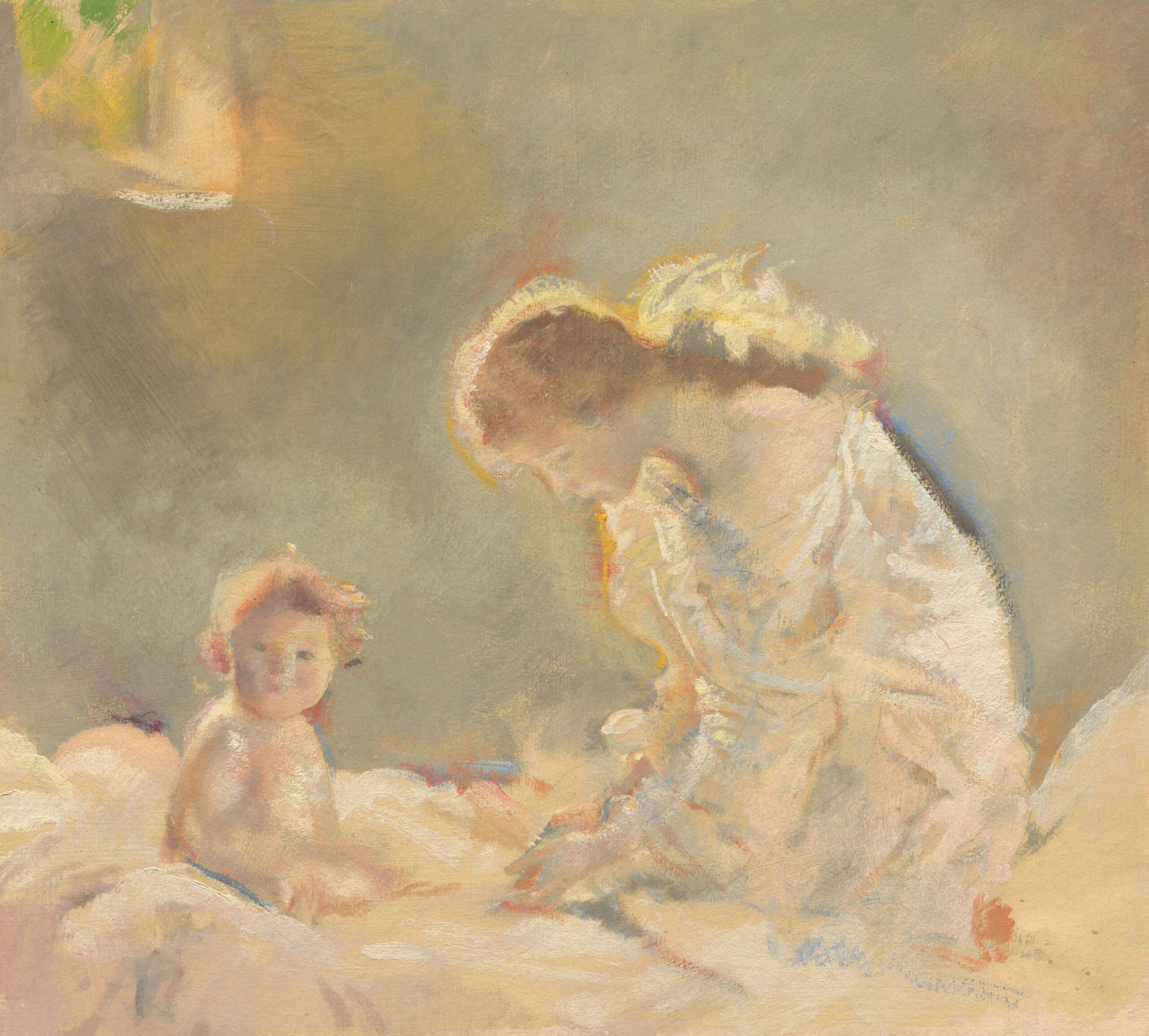

Photo by The Cleveland Museum of Art
Are you the responsible, conscientious eldest sibling, the overlooked and quiet middle child, or the coddled and outgoing youngest? These stereotypes are ideas that continue to circle around social media and popular culture. Although these categorisations seem to resonate with many individuals, their accuracy is dubious. Is it really the order in which you were born that determines such lasting traits? How does the role you play within a family influence your long-term life performance?
Birth order is commonly thought to influence the role you play within a family, as well as your intelligence, personality, and life experiences. TikTok and social media at large have shown an increased trend of people “analysing” birth order to assign personality traits and predict futures (Cherry, 2025). Given the interaction and views on these posts, it seems that many people resonate with the idea that birth order has significant implications for your future.
Birth order theory was originally introduced by psychoanalyst Alfred Adler, who posited that a child develops unique personality traits depending on the order in which they were born (Sissons, 2024). Adler argued that firstborns, receiving initial undivided attention by parents followed by caretaking responsibilities with the introduction of siblings, develop responsibility and overachieving traits. Middle children were suggested to become rebellious or peacemakers. They are more often overlooked, act out in desire of attention, and frequently mediate conflicts between their siblings. Last-born children were proposed to be more spoiled, outgoing, and self-centred as they experience greater parental leniency, attention, and laissez-faire parenting styles (Sissons, 2024). Lastly, Adler posited that only-children are similar to oldest siblings, in that they do not share parental attention, but also do not have the same level of socialising exposure at young ages, making them high-achieving, self-reliant, and sensitive (Cherry, 2025).
The theory illustrates a long list of traits per sibling – both positive and negative – making it easy to relate to some of the traits as they are numerous and relatively general. The idea that the order we are born in influences the traits we display is appealing: our familial relationships are pivotal to our development and birth order may offer an easy explanation for why siblings differ (Cherry, 2025). Yet, the scientific evidence for the notion that birth order influences personality is lacking.
Damian and Roberts (2015b) found a low correlation (r = 0.2) between birth order and personality in a large sample from the United States (US), but found a slightly higher correlation with intelligence (r = 0.4). An international meta-analysis study by Rohrer et al., (2015) examined large datasets from the US, Great Britain, and Germany, where results showed no birth-order effects on emotional stability, extraversion, conscientiousness, imagination, nor agreeableness – elements of the BIG five personality traits model. Yet, the paper examined studies in Western countries with individualistic culture, raising the question about whether such results are explained by individualism. Individualistic cultures are those in which people place more value on personal achievements and autonomy, whereas collectivistic cultures prioritise family cohesion and group goals. For instance, these individualistic values may reinforce the self-reliant characteristics typically associated with first-born children and the assertive or attention-seeking traits in later-borns. Thus, it is possible that the effects of birth order differ depending on culture. However, a study on a large Chinese sample, aligning with collectivist values, also found no effect of birth order on personality traits (Mu et al., 2023). More recently, Alabbasi et al. (2021) reported that firstborns displayed higher creativity than later-borns, and Nafissi & Vosoughi (2015) found differences in language development onset. Taken together, the findings paint a nuanced picture: while birth order may have some measurable associations with intelligence, health outcomes, and creativity, the evidence for its impact on long-term personality traits remains inconsistent and unconvincing. At its core, correlation is not causation; although the effects of birth-order on personality seem intuitive, there are likely confounding factors that better explain the associations found.
It is undeniable that family plays a pertinent role in one’s development. Within this, interactions with siblings are known to be pivotal in the development of one’s social skills, relationship management, and ability to cope with life challenges (McHale et al., 2014). Yet, one’s personality is an extremely complex, long-lasting pattern that develops from intricate interactions of factors. Culture, sibling relationship, age gaps, family socioeconomic status, parenting styles, and geo-political climates are some of the aspects proposed to contribute to personality and outward role performance more influentially than simply birth order (Damian & Roberts, 2015a). In the theatre of family life, we may perform roles, but birth order is not the author of our personalities.

Photo by The Cleveland Museum of Art
Are you the responsible, conscientious eldest sibling, the overlooked and quiet middle child, or the coddled and outgoing youngest? These stereotypes are ideas that continue to circle around social media and popular culture. Although these categorisations seem to resonate with many individuals, their accuracy is dubious. Is it really the order in which you were born that determines such lasting traits? How does the role you play within a family influence your long-term life performance?
Birth order is commonly thought to influence the role you play within a family, as well as your intelligence, personality, and life experiences. TikTok and social media at large have shown an increased trend of people “analysing” birth order to assign personality traits and predict futures (Cherry, 2025). Given the interaction and views on these posts, it seems that many people resonate with the idea that birth order has significant implications for your future.
Birth order theory was originally introduced by psychoanalyst Alfred Adler, who posited that a child develops unique personality traits depending on the order in which they were born (Sissons, 2024). Adler argued that firstborns, receiving initial undivided attention by parents followed by caretaking responsibilities with the introduction of siblings, develop responsibility and overachieving traits. Middle children were suggested to become rebellious or peacemakers. They are more often overlooked, act out in desire of attention, and frequently mediate conflicts between their siblings. Last-born children were proposed to be more spoiled, outgoing, and self-centred as they experience greater parental leniency, attention, and laissez-faire parenting styles (Sissons, 2024). Lastly, Adler posited that only-children are similar to oldest siblings, in that they do not share parental attention, but also do not have the same level of socialising exposure at young ages, making them high-achieving, self-reliant, and sensitive (Cherry, 2025).
The theory illustrates a long list of traits per sibling – both positive and negative – making it easy to relate to some of the traits as they are numerous and relatively general. The idea that the order we are born in influences the traits we display is appealing: our familial relationships are pivotal to our development and birth order may offer an easy explanation for why siblings differ (Cherry, 2025). Yet, the scientific evidence for the notion that birth order influences personality is lacking.
Damian and Roberts (2015b) found a low correlation (r = 0.2) between birth order and personality in a large sample from the United States (US), but found a slightly higher correlation with intelligence (r = 0.4). An international meta-analysis study by Rohrer et al., (2015) examined large datasets from the US, Great Britain, and Germany, where results showed no birth-order effects on emotional stability, extraversion, conscientiousness, imagination, nor agreeableness – elements of the BIG five personality traits model. Yet, the paper examined studies in Western countries with individualistic culture, raising the question about whether such results are explained by individualism. Individualistic cultures are those in which people place more value on personal achievements and autonomy, whereas collectivistic cultures prioritise family cohesion and group goals. For instance, these individualistic values may reinforce the self-reliant characteristics typically associated with first-born children and the assertive or attention-seeking traits in later-borns. Thus, it is possible that the effects of birth order differ depending on culture. However, a study on a large Chinese sample, aligning with collectivist values, also found no effect of birth order on personality traits (Mu et al., 2023). More recently, Alabbasi et al. (2021) reported that firstborns displayed higher creativity than later-borns, and Nafissi & Vosoughi (2015) found differences in language development onset. Taken together, the findings paint a nuanced picture: while birth order may have some measurable associations with intelligence, health outcomes, and creativity, the evidence for its impact on long-term personality traits remains inconsistent and unconvincing. At its core, correlation is not causation; although the effects of birth-order on personality seem intuitive, there are likely confounding factors that better explain the associations found.
It is undeniable that family plays a pertinent role in one’s development. Within this, interactions with siblings are known to be pivotal in the development of one’s social skills, relationship management, and ability to cope with life challenges (McHale et al., 2014). Yet, one’s personality is an extremely complex, long-lasting pattern that develops from intricate interactions of factors. Culture, sibling relationship, age gaps, family socioeconomic status, parenting styles, and geo-political climates are some of the aspects proposed to contribute to personality and outward role performance more influentially than simply birth order (Damian & Roberts, 2015a). In the theatre of family life, we may perform roles, but birth order is not the author of our personalities.



